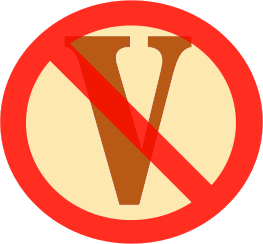ELIMINATION HEALTH REMEDIES

Categories in PoopStoolStool ColorElimination / Bowel RoutineOverviewDon't know your body type? Take our free Dosha quiz!
TAKE THE QUIZ
     (5.00 out of 5 stars) 1 rating, 218 likes (5.00 out of 5 stars) 1 rating, 218 likes SAVE SYMPTOM SAVE SYMPTOMHow often should you poop? Ayurveda suggests that one bowel movement in the early morning followed by a possible second bowel movement later in the day is appropriate. Your stool should be more or less the shape and texture of a ripe banana, easy to... 20 likes  SAVE SYMPTOM SAVE SYMPTOMLaxatives are substances that help encourage a bowel movement. They are generally used to relieve constipation and are intended for short-term use. However, many people can become dependent on the frequent use of laxatives to evacuate a stool.... 55 likes  SAVE SYMPTOM SAVE SYMPTOMStagnant stool sitting in the digestive tract may begin to putrefy, releasing irritating toxins. Moving the bowels flushes the toxicity. Mild or intermittent constipation can cause a buildup of toxins, making you anxious or emotionally unstable.... 12 likes  SAVE SYMPTOM SAVE SYMPTOM1-2 bowel movements a day is ideal. Stool should be like a banana in size, shape, and consistency with a medium brown color. The surface should be smooth but not slimy. 32 likes  SAVE SYMPTOM SAVE SYMPTOMUnless a person eats a large amount of fiber, Ayurveda suggests that normally a person will have 1-2 bowel movements per day. 3 or more bowel movements per day could be a sign of malabsorption of nutrients from food resulting from weak digestion.... 70 likes  SAVE SYMPTOM SAVE SYMPTOMCommon Causes of Diarrhea Inflamed, irritated intestines due to: Infection by parasites (i.e. E coli, Amoeba, Giardia, Salmonella, Campylobacter, Shigella, Arbocvirus, Norwalk, etc.) ... 20 likes  SAVE SYMPTOM SAVE SYMPTOMDiarrhea is a serious condition that should be reviewed by a medical doctor. Diarrhea quickly after eating may imply irritation in the intestines, an overactive gastro-colic reflex, or IBS. 40 likes  SAVE SYMPTOM SAVE SYMPTOMAlternating diarrhea and constipation is often simply constipation that eventually irritates the colon. Diarrhea dries out the colon, causing constipation. Constipation irritates the colon, causing diarrhea. This is symptomatic of 'low agni' (digestive... 14 likes  SAVE SYMPTOM SAVE SYMPTOMA well-formed long, lincoln log stool is a sign of a high fiber diet and often very healthy. Elimination more than once a day, or a larger quantity of softer stools can be a sign of fermentation (hot), or poor digestive function (cold). Soft stools... 19 likes  SAVE SYMPTOM SAVE SYMPTOMGas and watery stools together make the elimination explosive. Explosive elimination is often a sign of both irritated and weakened intestines. It may be a sign of colic, or irritable bowel syndrome. This condition should be addressed as quickly as... 10 likes  SAVE SYMPTOM SAVE SYMPTOMFecal incontinence may result from weakness of the muscles in the rectum, rapid emptying of veins in the sphincter, or inflammation causing an acute urge to defecate. Ashwini mudra may help in weakness. reduce blood stagnation in blood stasis. 39 likes  SAVE SYMPTOM SAVE SYMPTOMStraining could results from hard, dry stools (Vata). Or, inflammation of the intestines (Pitta) and lack of muscle tone in the terminal colon. Excess mucus could prevent elimination of stool (Kapha). Straining could cause prolapse of the rectum and... 17 likes  SAVE SYMPTOM SAVE SYMPTOMThe frequent urge to defecate is the repeated desire to pass a stool. The urge to pass a stool is a natural sensation, and signals it is time to evacuate feces. However, this urge can become excessive, abnormal, and even painful. Frequent urge to... 21 likes  SAVE SYMPTOM SAVE SYMPTOMA clean colon is the measure of health in Ayurveda. Ayurveda gives great importance to cleansing impacted fecal matter using laxatives or enema where appropriate. The impacted matter can be a source of toxicity and infection. 47 likes  SAVE SYMPTOM SAVE SYMPTOMThis symptom describes a feeling of fullness, bloating, or pressure in the center of the body below the belly button, often caused by stagnant decal matter in the lower GI (ileum or rectum). It is easiest to experience while belly breathing, or a... POOP TIPS DISCLAIMER: The pathogenesis of each person's condition is unique, and so the diet must be fit to the individual and the unique root causes of the condition in your body. The information on this page is for educational purposes only and should not be used to treat a medical condition. It is not a substitute for medical care. Please check with your doctor before making any changes to your health and wellness routine. HOW AYURVEDA WORKSARE YOU WONDERING HOW AYURVEDA CAN HELP YOU?WHY IS AYURVEDA THE RIGHT SOLUTION?Ayurveda strengthens the body while opposing disorders. It takes a holistic, systemic approach that looks at the whole body. Ayurveda shows how to interpret signs and symptoms of imbalance, and how to address them using diet, lifestyle adjustments, and herbs. It shows a person how to optimize their health on a continual basis. You can't take the doctor home with you, but you can take Ayurveda home with you. Ayurveda is the most advanced and easy to use home system for self healing.HOW DOES AYURVEDA WORK?Ayurveda starts by identifying your body type, which identifies certain tendencies in your body to get sick (as well as identifying your strengths). It uses body type to determine the likely root causes of your disorders. Next, Ayurveda analyzes the nature of your disorder. It fits all your signs and symptoms into a pattern, expressed as a combination of biocharaceristics (gunas). For example, you may have a heat disorder, a cold disorder, or an oily disorder, etc. This simple categorical approach shows you how to correct systemic imbalances and strengthen your body as a whole.On Joyful Belly, we've created an extensive categorization of food so you can easily match food to your imbalanced biocharacteristics. By eating an optimal diet that balances your biocharacteristics, your whole body is strengthened and the conditions that created the disorder are removed. Once the root causes of the disease are removed, the disease lessens in strength or disappears altogether. Additional remedies - such as herbs and lifestyle practices - focused on the specific disorder, can greatly enhance your healing. GET STARTEDTo get started on your Ayurvedic journey, we first recommend that your find your body type by taking our free quiz. In Ayurveda, every solution is based on your unique body type, so by taking this quiz, you’ll get the best results. |
Join Joyful Belly.
Want our top Ayurvedic recipes and health tips?Subscribe to our free newsletter!











